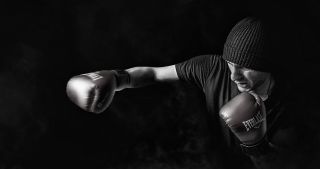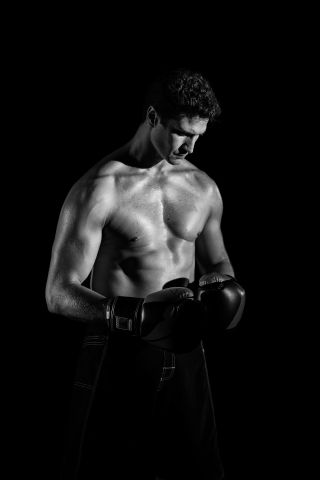Sex
Do Sex and Orgasm Impact Athletic Performance?
Despite the myth, orgasms do not negatively affect athletic competition.
Posted March 20, 2023 Reviewed by Ekua Hagan
Key points
- Physiological evidence finds that sex more than two hours before an athletic event has no impact on performance.
- Nocturnal emissions are a normal, healthy biological process and may be an indicator of higher testosterone in males.
- The belief that orgasm or sex negatively impacts sport competition can create a self-fulfilling prophecy in those who believe this myth.

Following a recent loss in a boxing match, YouTube influencer Jake Paul said on his brother’s podcast that he believed his loss was influenced by a surprising factor: a wet dream. “I literally f***ed myself over, I woke up in a panic. I had two weeks of testosterone built up. It makes your legs weak; your body starts getting lackadaisical.”1
Wet dreams, known clinically as nocturnal emissions, involve a male having an orgasm and ejaculation during sleep. While these experiences involve physical sensations and often inadvertent stimulation in the bed during sleep, they are a normal part of sexual physiological behavior.
Clinical research indicates that nocturnal emissions increase after periods of sexual celibacy, and it is believed that these nighttime ejaculations serve an important biological role. Sperm have a “shelf life,” after which their motility and effectiveness is diminished. In males who are not having regular orgasms, old sperm can build up in the testicles. In order to get rid of this aged, less effective sperm, the human body has wet dreams, making way for the production of new sperm.
As Paul worries that his wet dream reduced his testosterone, and made him less effective a boxer, he’s invoking ancient myths of male sexuality. Football coaches are famous for telling athletes to abstain from sex or masturbation before a game. These traditions emerge from ancient beliefs that male ejaculation somehow weakens a male. In the 17th century, Swiss physician Samuel Tissot claimed that male ejaculation depleted the man of some “essential spirit.” In some Asian traditions, male orgasm depletes their “chi” or “ching,” depleting an energy that would be built up and increased if he withheld from ejaculating.
Testosterone
Testosterone is a human hormone, present in both males and females, though it is more associated with stereotypically male physical and behavioral presentations. Testosterone increases in men who engage in regular physical competitions or sexual behaviors. Higher levels of testosterone do often correlate with performance in physical conflicts, and have relationship to both muscular development and growth, and to aggression in the conflict.
It’s a common online myth that abstinence from sex or masturbation increases testosterone in males. One Chinese study found that after six days of abstinence, testosterone increased on the seventh days. This study has been retracted2 by the editors due to concerns about the originality and quality of the data. Beyond this retraction, a substantial rebuke of the study, other concerns involve the very small sample size of the study and the fact that the data show that their testosterone actually decreased each of the first six days. Some suggest that the T spike on the seventh day may have been an artifact of the men knowing that the study ended after seven days, and that the men would be able to orgasm the next day. Evolutionarily, testosterone spikes following sex seem to prepare the body for more future sex. Men with greater sexual opportunities may have higher T, in an interactive, self-reinforcing pattern.
In contrast to this single study, numerous larger, more comprehensive studies indicate that abstinence normally predicts decreased levels of testosterone. Men who have sex or masturbate tend to have higher testosterone, and more orgasms predict higher testosterone levels. Indeed, some research suggests that nocturnal emissions may be more common in males with higher levels of testosterone.

Sports, Sex, and Testosterone
The relationship between sports performance and testosterone is of significant interest to athletes and their coaches, for understandable reasons in people who want to increase their performance and success. Testosterone peaks during exercise and peaks in testosterone are involved in muscle growth.
Higher sexual functioning is generally associated with higher levels of physical health. Sedentary behavior is associated with many physiological diseases, and with sexual disorders such as erectile dysfunction. Some sports-related injuries, such as genital injuries, can negatively affect sexual functioning. Sexual activity increases and stimulates testosterone production. Testosterone and sexual activity and increased testosterone levels may enhance sport performance. Some coaches and athletes believe that sexual frustration or deprivation could enhance motivation for competition and aggression, though one could argue there are likely more effective methods.
Cyclists are, according to some research, at risk of higher levels of testosterone deficiency, erectile dysfunction and genital numbness. These effects are believed to relate to the physical, mechanical pressures caused by the bicycle saddle on the male genital blood flow and nerve functioning.
In men, sexual intercourse represents a modest level of physical stress, with heart rate and blood pressure at about 75 percent of maximum, compared to treadmill stress tests. In one controlled laboratory study, sexual intercourse about 12 hours before treadmill testing of physical exercise had no detrimental impact on either physiological performance or on plasma testosterone levels. Physiological data and heart rate recovery suggested that sexual intercourse within two hours of an athletic event could impact athletic performance.
Sgro and Luigi caution against blanket proclamations and directions about sexual behaviors and athletic performance, given different physiological effects and demands of different sports activities, as well as individual human differences. This is certainly relevant here, as the nocturnal emission sparking Paul’s concern involved none (or very little) of the physical exertion involved in sexual intercourse.
It's worth noting that it seems to only be men who get concerned over this. This reflects the fact that through history, it's primarily male orgasm/masturbation which is seen as detrimental. Jake Paul's predecessor, celebrity MMA fighter Rhonda Rousey famously made frequent sex a part of her pre-fight routine,3 under the (probably accurate) belief that it increased her testosterone levels.
In a 2019 laboratory study involving my colleague Jim Pfaus, eight individuals participated in several physical exercises on three different mornings. One night before the exercises, the individuals had sex to orgasm, another night they did not have sex, and the third night they engaged in yoga. Physical testing included test of hand grip, standing vertical jump, reaction time and pushups.
Researchers found that sexual activity the night before had some prediction of lower systolic blood pressure during physical testing, and the more pleasurable the sex and orgasm were, the lower the blood pressure the next morning. However, the researchers found no differences between sex, no sex or yoga, on actual performance during physical exercise testing. (Sexual activity the night before exercise does not affect various measures of physical exercise performance.)
Superstitions and Self-Fulfilling Prophecies
Many athletes believe in superstitions and the power of rituals. Things like lucky shorts, or preparation rituals can help to get an athlete in a competitive mind frame, and are often used by elite athletes to regulate emotional states. Unfortunately, such beliefs can also impair performance, if a negatively-perceived event occurs and the athlete believes that this event will hurt their performance or chances of success.
It seems likely that this is what occurred in this case with Jake Paul—he believed that orgasm and ejaculation would negatively impact his athletic performance. When his body acted on normal biological mechanisms to expend aged sperm, Paul may have viewed this as both his body betraying him, and a sign of potential weakness. (Sadly, he was unaware that this may actually reflect higher testosterone and greater sexual opportunity.) Given that this event was more than two hours before his boxing event, it’s extremely unlikely that it had any demonstrable impact on his physiological performance. However, Paul’s beliefs and fears are much more likely to have negatively impacted his boxing, through a self-fulfilling prophecy.
It’s also possible that Paul’s invocation of this explanation after the fact could be more of an excuse. But, giving him the benefit of a doubt, the event illustrates the impact that biology myths and superstitions in the sports world can have upon athletic performance. Interestingly, Paul himself is continuing and feeding this myth, planting it in the minds of his listeners and followers, just as it was presumably once planted in his own beliefs. Only through consistent challenging of pseudoscience and myths such as these can we assist athletes to perform at their top levels.




